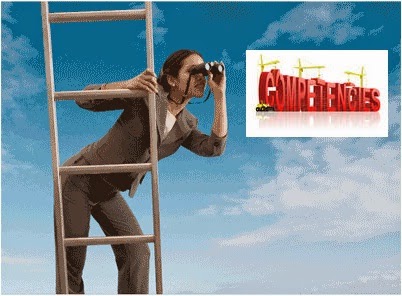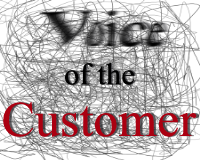By now all of us are aware about M C Mary Kom (yes, her complete name is Mangte Chungneijang Mary Com). The 5 time world women boxing champion, awardee of Padma Bhushan and Rajiv Gandhi Khel Ratna Puraskar, a mother, a wife and finally an Olympian who won medal for India.
She was from a very poor family whose father was a landless labour in Manipur. Her introduction in her official website says "Mangte Chungneijang Mary Kom, (born 1 March 1983), also known as MC Mary Kom, Magnificent Mary or simply Mary Kom, is an Indian boxer belonging to Kom tribal community of north-eastern state of Manipur. She is a five-time World Boxing champion, and the only woman boxer to have won a medal in each one of the six world championships. She is the only Indian woman boxer to have qualified for the 2012 Summer Olympics, competing in the flyweight (51 kg) category and winning the bronze medal. She has also been ranked as No. 4 AIBA World Women’s Ranking Flyweight category"
Mary Kom was born in Kangathei, in Churachanpur district of Manipur. Her parents, Mangte Tonpa Kom and Mangte Akham Kom, worked in jhum fields. She completed her primary education from Loktak Christian Model High School, Moirang, up to her class VI standard and attended St. Xavier Catholic School, Moirang, up to class VIII. She then moved to Adimjati High School, Imphal, for her schooling for class IX and X, but could not pass her exam. She did not want to reappear for her exams so she quit her school and gave her examination from NIOS, Imphal and graduation from Churachandpur College.
Although she had a keen interest in athletics from childhood, it was the success of Dingko Singh that inspired her to become a boxer in 2000. She started her training under the close eye of M.Narjit Singh, Manipur State Boxing Coach at Khuman Lampak,Imphal.
For her age and background , she has achieved much more than average of us do. She has achieved multiple awards, name, fame and recognition even in the condition when she had nothing - neither MONEY nor support. Today, when women do not want to have child to make "career" even at her age, Mary Kom is an example that its you who can decide your own limit, nobody else.
Here is few take away for all of us. I have seen people complaining lack of support, lack of resources. When she started, she even did not have basic MONEY to travel. She did not have good trainer, she did not have enough support. It is not about having resources, it is about having excuses for not getting success in our life.
Learning from Mary Kom
1. Its not resources, its passion who make us successful: When Mary Kom thought about boxing, she had nothing. She even used to hungry, she had to depend on relatives. But she was passionate enough about boxing. She even left education for it and she succeeded. Follow your passion.
2. We can get the money and fame we want if we follow your passion: Mary Kom faced lot of difficulty in her life even till few years back. She had to travel in general coach of the train (and forget about a reservation class and flight was a distant dream). Her things were stolen, she was ill. But finally, due to her determination, dedication and passion, she became 5 times world champion and even won Olympic Medal. With this she could change her own financial condition as well as of her family. We struggle to do MBA/ qualification TO MAKE MONEY .
3. We cannot get success without other's help: Reaching to the glory at this height would not have been possible for her without the help of other people. It includes his father and mother who sent money to her despite of their own adversity. Its support of her own Kom community who always stood with her. Its about her coaches at SAI as well as others, its support of her husband Onler who gave up his career for her success. You cannot remain isolated and never remain successful. If you are a leader, without support of your team member- whatever they are, whoever they are, without them you cannot remain successful.
4. We should always remain grateful: Mary Kom, in her autobiography mentions contributions of everybody who helped her. It includes her all coaches, friends and community who supported her. She reached to the top level of fame. But she never forgot all these people in her life. How many of us do that? We work, company provide us employment and when something goes wrong (particularly our expectations) then we abuse the company and boss and we start to find out what they do not have. Agree, but she should not forget the positive side and should remain always grateful of what we have. If she would have started to hate all of us Indian because somebody stole her luggage in train, because one of her teammates stole her cash then I do not think she should have reached to this place. She feels gratitude towards her sponsors like Monnet Steel and Herbalife and Olympic Gold Quest. This is lesson for us- to remain grateful always.
5. It is about giving, not only taking: When she won the medal, money started following. She purchased land for her father, she made enough provision for her siblings, she included her brother in law's family and took care of them too. She got from the society, and she paid back the same by opening free Mary Kom boxing championship so she could give back to the society. We must have similar attitude about our career. It is not about our money, it is about how we got it.
6. Make enough provision for future, success is not permanent: After earning money, she wanted to purchase a Merc but she knew it is not a good idea considering the road condition and the cost. Rather, she invested the money for future as she knew value of every single penny. Similar situation arises to our life. We have job, we have business but do we know its sustainability? We must not spent all at once, we must make enough provision for our future.
7. We decide our own obstacle, nothing else: Mary Kom's first child was unplanned. It suddenly came. People thought her career ended now. It was a caesarian child so doctor had advised her to take rest for at least 3 years. She decided to start early and prepare for Olympic. People including her father thought that her boxing career has finished now. She proved all of them wrong. We should always listen to our intention, we must be determined enough about us. Nobody else can decide our career and life except us.
8. Focus on strength not on weaknesses: It is our habit. I often here people saying, I do not have MNC background, I do not have a degree from a good institute, I do not have a degree, I do not have an IIM or tier 1 MBA and so on. I do not know why we crib? Why we focus on what we do not have? Should not we focus on whatever we have? In Boxing game, several time, her opponents were strong, taller but she did enough study about them, watched their video and found they are weak in strategy. She took advantage of this. She focussed on her strength and did not give up on her lacking i.e. height.
9. Define your own success parameters: We normally compare and compete with others.We must change this attitude. It should be "I". We should decide our position now and where we want to go. She did not compete with her other players and thinking to compete with them. She was focussed on world championship and she won. She focussed on Olympic and she won. Compete with yourself. Not with others.
10. Be true to yourself: Always remain true to yourself. Do not give excuses and do not over show your performance. I have seen many people who interfere in others' work to show that other people cannot do something and only they can do it and over show it to their boss. They never accept their failure. In case of Mary Kom's when she could not return with GOLD (although she won Bronze) she was crying for not giving her best. How many of us dare to do so? In her book, she ask for pardon for her inability. Still she is the winner.
She has achieved much more than average of us do. She has achieved multiple awards, name, fame and recognition even in the condition when she had nothing -neither MONEY nor support. Today, when women do not want to have child to make "career" even at her age, Mary Kom is an example that its you who can decide your own limit, nobody else.....
 Robin Sharma says there is only a incermental difference
between a millionaire and an average individual
in terms of happiness. Infact he goes on to say that many a
milionaire’s are less happy than an average individual.
Robin Sharma says there is only a incermental difference
between a millionaire and an average individual
in terms of happiness. Infact he goes on to say that many a
milionaire’s are less happy than an average individual. One needs to learn to balance on all these fronts and its not going to
be easy. However what could help is that we are aware of our well-being on all
these fronts and consciously working towards building a well rounded happiness
and building a good “wellness quotient”.
One needs to learn to balance on all these fronts and its not going to
be easy. However what could help is that we are aware of our well-being on all
these fronts and consciously working towards building a well rounded happiness
and building a good “wellness quotient”. 






